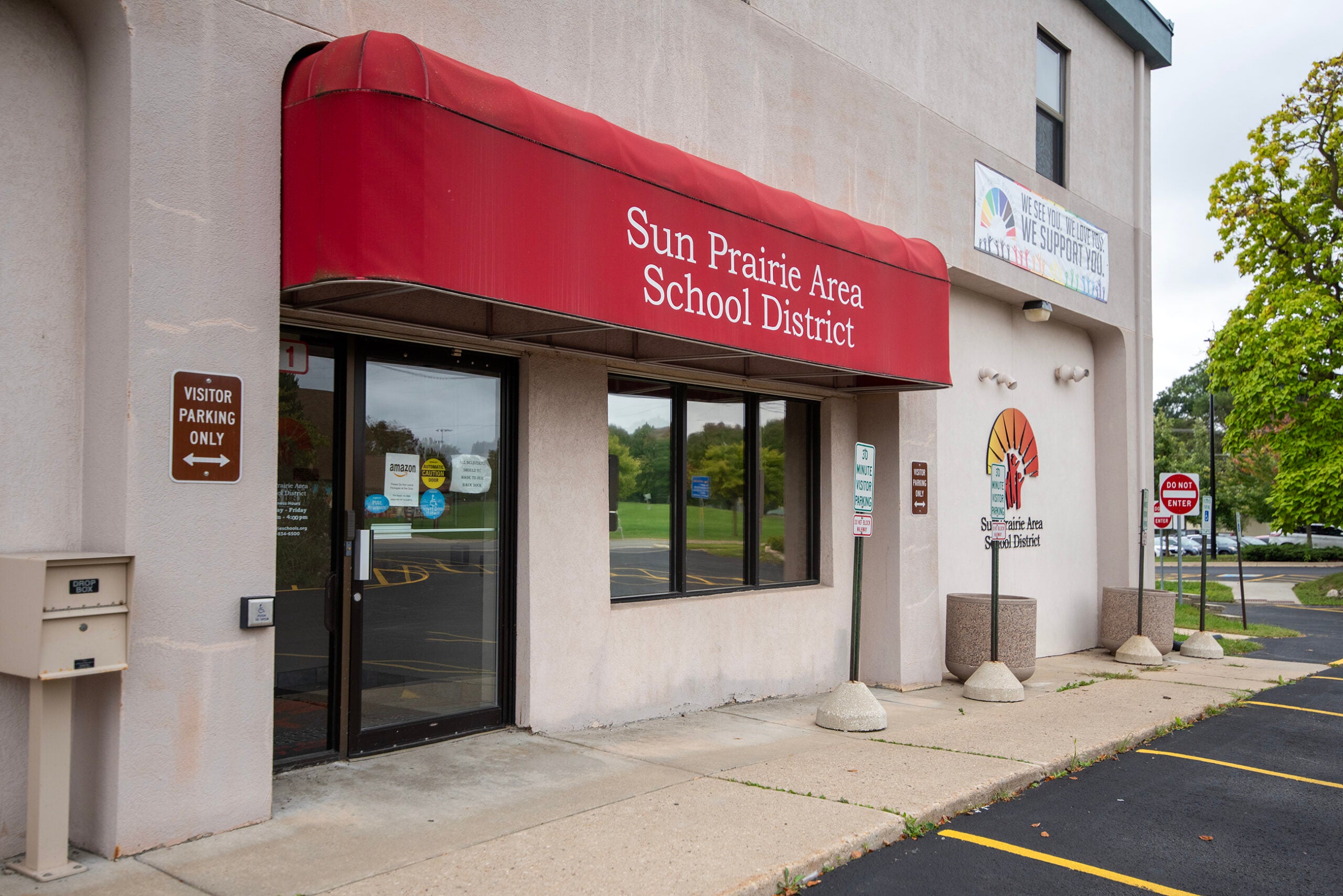Two brothers who have been fighting for eight years to get their jobs back with the Oconomowoc Area School District after they were cited for stealing scrap metal took their argument to the Wisconsin Supreme Court Tuesday.
How the court rules in the case could set precedent for how Wisconsin employers handle investigations of employees moving forward.
At issue is the timing of the brothers’ termination.
News with a little more humanity
WPR’s “Wisconsin Today” newsletter keeps you connected to the state you love without feeling overwhelmed. No paywall. No agenda. No corporate filter.
Gregory and Jeff Cota were part of the school district’s grounds crew. An investigation in 2014 found the brothers, a supervisor and co-worker kept more than $5,000 that was supposed to be turned over to the district after they recycled scrap metal, according to the lawsuit.
Pam Casey, the district’s director of human resources, believed the brothers were responsible for the theft, but did not feel she had enough evidence to terminate them.
The case was turned over to law enforcement.
Two years later, Casey was told by the prosecutor that he believed he could convict the brothers but he anticipated being able to reach a settlement, according to the lawsuit.
The Cotas paid a municipal fine of $500. They were fired two days later in 2016.
Their attorneys argued Tuesday that firing the Cotas after they were cited violates the Fair Employment Act’s prohibition against arrest record discrimination.
Wisconsin is one of a minority of states that prohibit discrimination against employees and applicants on the basis of arrest and conviction records. The Wisconsin Fair Employment Act includes a defense for the employer when a pending arrest or a conviction substantially relates to the job.
Attorney Nicholas Yurk said the information Casey received from law enforcement before deciding to terminate the Cotas falls within the protected act.
But Oyvind Wistrom, an attorney for the Oconomowoc Area School District, said the information only confirmed Casey’s beliefs.
“The employer learned of the information, they did their investigation, they believed (the Cotas) were guilty of the offending conduct, and then referred it to the authorities,” Wistrom said.
Justices Rebecca Dallet and Jill Karofsky questioned why it took two years for the men to be terminated if the school district had the same belief as the prosecutor.
But Chief Justice Annette Ziegler said the complicated case centered on employee rights could end up backfiring for workers.
“So, for the employer who wants to maybe even give someone the benefit of the doubt, what if an investigation exonerates someone?” Ziegler said. “It almost seems like the lesson here is to hurry up and fire someone before they get arrested or before there’s some other investigation, because then this act won’t come into play.”
In 2021, the state’s Labor and Industry Review Commission found the Oconomowoc School District had violated the Wisconsin Fair Employment Act. A Waukesha County Circuit Court judge upheld the decision in 2022.
The school district appealed. In January, the Wisconsin Court of Appeals reversed the lower court ruling, finding the brothers were not protected by the Fair Employment Act.
Wisconsin Public Radio, © Copyright 2026, Board of Regents of the University of Wisconsin System and Wisconsin Educational Communications Board.






